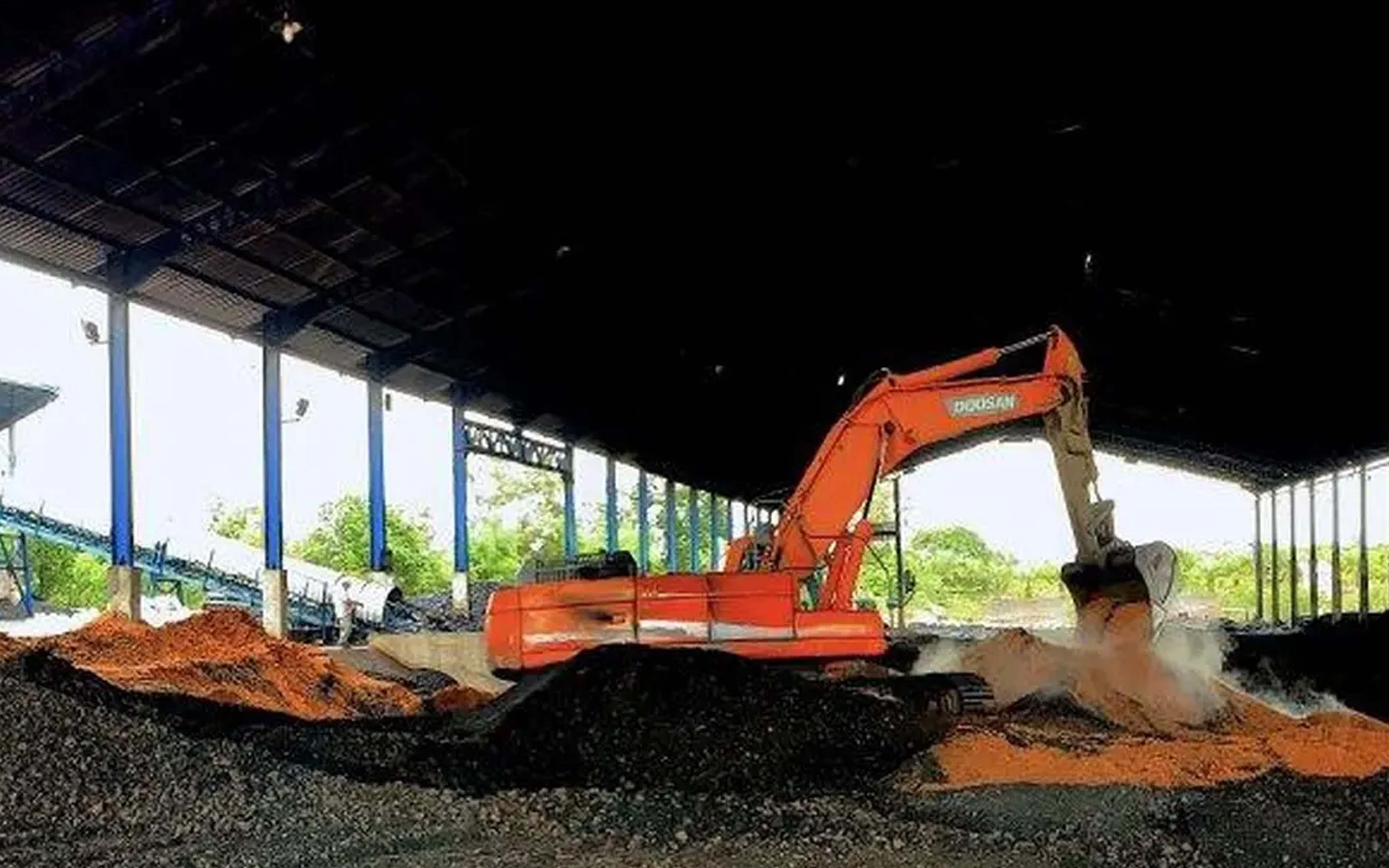Langgam Pos - PT Indonesia Power is enhancing its biomass supply as the primary energy source for its Steam Power Plants (PLTU) by establishing the Kota Medan Solid Fuel Facility, which converts municipal waste into energy.
Edwin Nugraha Putra, President Director of PLN Indonesia Power, highlighted the company's continuous innovation aimed at reducing carbon emissions in the electricity sector. This includes the implementation of cofiring, which utilizes biomass—derived in part from municipal waste—to reduce coal consumption in power plants.
“By adopting cofiring, PLN Indonesia Power can help cut down the carbon emissions produced by the electricity sector, particularly from the power plants operated by our Business Unit,” Edwin said on Monday (July 29, 2024).
PLN Indonesia Power is committed to sustaining its biomass supply by constructing a pilot BBJP facility located at the Terjun Landfill in Medan Marelan, Medan City. This pilot project is being executed in collaboration with the Medan City Government. The BBJP assets have been handed over to the Medan City Government through the City’s Environmental Agency.
Edwin revealed that the BBJP facility generates 16 tons of fuel per month from Medan's municipal waste. This BBJP is then sent to the Pangkalan Susu power plant, where it is mixed with coal—the primary fuel for the plant. The BBJP makes up 3% of the daily fuel mix at Pangkalan Susu, with a calorific value of 3400 KCal/Kg.
Electrical System Impact
The BBJP pilot project has successfully materialized with the support of various stakeholders, and Edwin expressed gratitude for the collaboration and synergy. He explained that the Pangkalan Susu power plant plays a significant role in the North Sumatra electrical system, contributing around 29% to the region's 275 KV transmission network.
“This plant is a backbone of the electrical system in North Sumatra. By incorporating BBJP, PLN Indonesia Power can reduce coal consumption at the plant, which is crucial for the electricity supply,” Edwin added.
Edwin emphasized that PLN Indonesia Power’s commitment to utilizing BBJP has a dual impact: it reduces waste volume and transforms it into a useful product that benefits the community.
“We hope this example will inspire an increase in production capacity, leading to enhanced income and welfare for local communities. It is our shared goal to improve the well-being of the surrounding areas,” Edwin said.
Utilizing Waste
Muhammad Husni, Head of the Medan City Environmental Agency, extended his thanks to PT PLN (Persero) and PLN Indonesia Power UBP Pangkalan Susu for their success with the pilot project, which utilizes waste as raw material for BBJP.
“We extend our deepest thanks, especially to PLN Indonesia Power PLTU Pangkalan Susu, for their initiative in managing waste into Solid Biomass Fuel,” said Muhammad Husni.
The Terjun Landfill is the final disposal site for Medan's waste, located in Terjun Village, Medan Marelan District. Managed by the Medan City Environmental Agency, this landfill has been operational since 1993, covering an area of 137,563 m² with an open dumping system, handling 1,535 tons of waste daily.
“By adopting cofiring, PLN Indonesia Power can help cut down the carbon emissions produced by the electricity sector, particularly from the power plants operated by our Business Unit,” Edwin said on Monday (July 29, 2024).
PLN Indonesia Power is committed to sustaining its biomass supply by constructing a pilot BBJP facility located at the Terjun Landfill in Medan Marelan, Medan City. This pilot project is being executed in collaboration with the Medan City Government. The BBJP assets have been handed over to the Medan City Government through the City’s Environmental Agency.
Edwin revealed that the BBJP facility generates 16 tons of fuel per month from Medan's municipal waste. This BBJP is then sent to the Pangkalan Susu power plant, where it is mixed with coal—the primary fuel for the plant. The BBJP makes up 3% of the daily fuel mix at Pangkalan Susu, with a calorific value of 3400 KCal/Kg.
Electrical System Impact
The BBJP pilot project has successfully materialized with the support of various stakeholders, and Edwin expressed gratitude for the collaboration and synergy. He explained that the Pangkalan Susu power plant plays a significant role in the North Sumatra electrical system, contributing around 29% to the region's 275 KV transmission network.
“This plant is a backbone of the electrical system in North Sumatra. By incorporating BBJP, PLN Indonesia Power can reduce coal consumption at the plant, which is crucial for the electricity supply,” Edwin added.
Edwin emphasized that PLN Indonesia Power’s commitment to utilizing BBJP has a dual impact: it reduces waste volume and transforms it into a useful product that benefits the community.
“We hope this example will inspire an increase in production capacity, leading to enhanced income and welfare for local communities. It is our shared goal to improve the well-being of the surrounding areas,” Edwin said.
Utilizing Waste
Muhammad Husni, Head of the Medan City Environmental Agency, extended his thanks to PT PLN (Persero) and PLN Indonesia Power UBP Pangkalan Susu for their success with the pilot project, which utilizes waste as raw material for BBJP.
“We extend our deepest thanks, especially to PLN Indonesia Power PLTU Pangkalan Susu, for their initiative in managing waste into Solid Biomass Fuel,” said Muhammad Husni.
The Terjun Landfill is the final disposal site for Medan's waste, located in Terjun Village, Medan Marelan District. Managed by the Medan City Environmental Agency, this landfill has been operational since 1993, covering an area of 137,563 m² with an open dumping system, handling 1,535 tons of waste daily.
(*)
Tags: turn waste into power, from waste to power, how to turn trash into electricity, use waste to become electricity, how to turn waste into electricity, sustainable waste management, interesting engineering, electricity from recycled trash, waste management, convert rubbish to electricity, recycled trash, trash recycling, recycling for electricity, waste-to-energy, crafty engineer, greenhouse gases, energy-from-waste, science technology, producing electric ,convert trash












